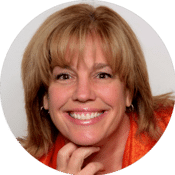The global self-help industry is estimated to be worth billions of dollars annually, with self-help books alone estimated at around $10 million every year. That’s a lot of self-improvement. More and more self-improvement, always striving to get better—like the bionic man, getting bigger, faster, stronger. That’s just plain exhausting.
It’s time to embrace unself-help.
The term “unselfing” has been used in philosophical and spiritual contexts. Iris Murdoch, an Irish novelist and philosopher, uses the term to describes when beauty takes us outside of ourself. Unselfing moves awareness away from our own limited self to a larger awareness. It’s the process or practice of moving away from “me” identification to a more open and interconnected way of being.
In the philosophy of phenomenology, unselfing involves becoming aware of and disengaged from the self into a deeper connection with the world and others, experiencing the world more directly and authentically. In existentialism, unselfing is related to the idea of transcendence—when an individual moves beyond their individuality and embraces a larger meaning and purpose in life. The like-minded concept of “no-self” is a central idea in Eastern philosophies such as Buddhism, which suggests that this sense of an individual, separate self, is what causes suffering.
Don’t get me wrong, self-help and growth are important. A healthy self-image is foundational to overall well-being. It leads to improved mental health, fulfilling relationships, goal achievement, and a greater sense of resilience and purpose in life. In fact, at Wholebeing Institute, we teach how to develop a healthy self-image—and that we can have more than just one concept of self.
Self-help is necessary, but not sufficient, for wholeness. Unless we also elevate and experience unselfing, we are missing a critical part of life.
After two decades of teaching well-being, through the Eastern wisdom traditions of yoga and the Western science of positive psychology, I personally experienced the limitations of self-growth, when I hit a solid, bruising boundary during the COVID lockdown. Within a short window, my brother-in-law died unexpectedly. My nephew died of a drug overdose. And a beloved friend hit rock bottom with addiction. The thought of engaging in positivity boosters, gratitude, or any other intervention was too much of a lift. All I wanted to do was nothing. So that’s what I did. I surrendered.
That’s when I experienced the peace that comes from simply resting in a larger container, trusting that the self I could no longer hold together could be held by something bigger than me.
I’m an entrepreneur at heart, and entrepreneurs tend to want to fix things. To make them better. To hold it all together. Forward action is our default mode. Inaction is not the entrepreneur’s go-to strategy. And yet, unselfing is an important practice, so that the demands of leadership don’t become too heavy a burden, and so we don’t have to carry the immense weight of life and entrepreneurship on our small shoulders (no matter how big and capable they are).
In work and in life, the self is never big enough on its own to hold the whole. So how do we practice unselfing?
Murdoch suggests that natural beauty transports us outside our self, writing, “I am looking out my window in an anxious and resentful state of mind, oblivious of my surroundings, brooding perhaps on some damage done to my prestige. Then suddenly I observe a hovering kestrel. In a moment everything is altered. The brooding self with its hurt vanity has disappeared. There is nothing now but the kestrel. And when I return to thinking of the other matter it seems less important. And of course this is something which we may also do deliberately: give attention to nature in order to clear our minds of selfish care.”
Art can be an act of unselfing. Yodelpop co-founders Jacqueline Lalley and Camille Winer took their team to the Milwaukee Art Museum. Getting out of the office, connecting with others, and seeing works of art invites moments of unselfing.
For me, unselfing experiences come through meditation and yoga.
What are the ways you let go of the burden of self, and experience a glimpse of the unself?
When cultivating the perspective of no-self, it’s essential to approach it with an open mind and heart. Allow yourself the time and space to explore and experience the profound concept of unself-help, alongside self-help.

Megan McDonough
As the founder of Wholebeing Institute, Megan McDonough leads with divergent thinking and creative perspectives to build organizations and networks that harness the best in people for the greatest good. She has decades of leadership experience in diverse settings, in roles ranging from Alliance Manager of a $300 million relationship at DuPont; to General Manager of RISE at Kripalu, the largest yoga retreat center in North America; to numerous online-learning startups. A yoga enthusiast, Megan has practiced for more than 20 years and taught for more than a decade, and brings that mindfulness practice to her leadership. Her degree in biology, natural science, and nuclear medicine has little to do with her current work, and everything to do with her radically receptive approach to life. She is the award-winning author of four books on living mindfully.


